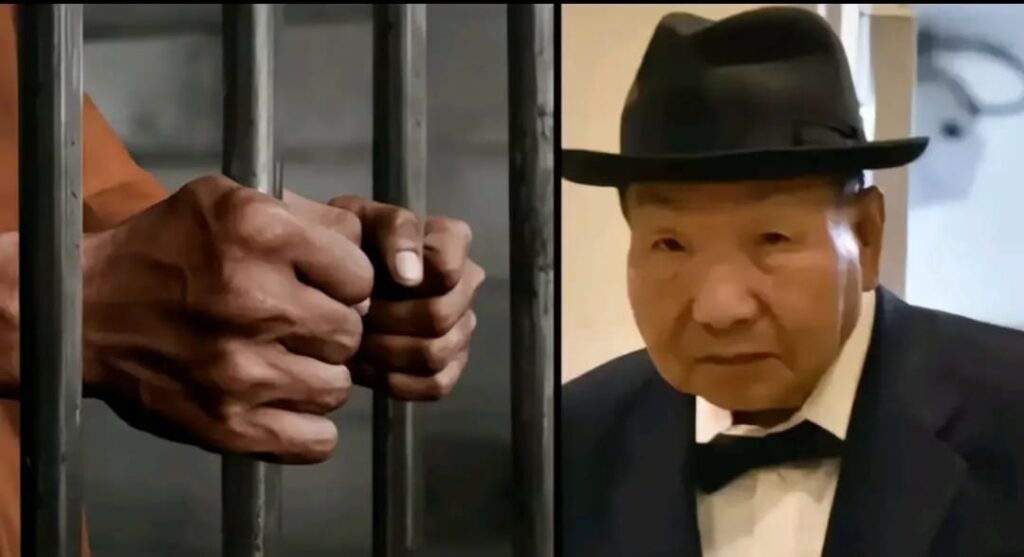Iwao Hakamada: 46 Years in Prison for a Crime He Didn’t Commit
Iwao Hakamada’s story is one of the most heartbreaking and significant cases of wrongful conviction in modern history. A former professional boxer from Japan,
Hakamada’s life was turned upside down when he was wrongfully accused of a horrific crime in 1966. The crime in question was the brutal murder of his boss, the boss’s wife, and their two children. The family was discovered in their home, which had been set on fire after the murders.
At the time of the crime, Hakamada worked at a soybean factory owned by the family he was accused of killing. In a swift and tragic turn of events, he was arrested by the police and subjected to intense and prolonged questioning.
After being interrogated for 20 days, Hakamada eventually gave a confession, admitting to the murders. However, he later retracted this confession, claiming that it was forced out of him through physical and psychological torture.
Despite Hakamada’s insistence that he was innocent, and the absence of solid evidence linking him to the crime, the court found him guilty in 1968 and sentenced him to death.
For the next 46 years, Hakamada remained on death row, his life hanging in the balance every day. In Japan, death row inmates are not informed in advance about the date of their execution, which causes tremendous fear and anxiety for those awaiting their fate.
One of the critical pieces of evidence used to convict Hakamada was a set of bloodstained clothes that were claimed to belong to him. However, these clothes were discovered more than a year after the crime, which raised significant questions about their authenticity.
Hakamada’s defense team pointed out that the clothes did not even fit him. Later, DNA tests on the bloodstains revealed that the blood did not belong to Hakamada.
In 2014, after decades of legal battles and international attention, Hakamada was granted a retrial. The court found enough inconsistencies in the evidence to doubt the validity of his conviction.
After spending 46 years behind bars, more than any other death row inmate in history, Hakamada was released from prison.
Yet, his struggles didn’t end with his release. Although he was free, the years of wrongful imprisonment had taken a heavy toll on his mental health.
Hakamada had spent much of his time in solitary confinement, which led to severe psychological issues. He was diagnosed with mental illness, which made it extremely difficult for him to readjust to life outside the prison walls.
In March 2023, a Japanese court finally declared that Hakamada was not guilty of the murders. The court recognized that his confession had been coerced and that the evidence used to convict him was unreliable. While this ruling brought some sense of justice, it came far too late to undo the damage caused by 46 years of wrongful imprisonment.
Hakamada’s case has sparked widespread criticism of Japan’s criminal justice system, particularly its heavy reliance on confessions, many of which are obtained under duress. His story has become a powerful symbol of the need for reform in how suspects are treated and how convictions are obtained in Japan.
Throughout this long ordeal, Hakamada’s sister, Hideko, stood by him. She fought tirelessly for his release and exoneration, playing a crucial role in keeping his case in the public eye and pushing for justice. Her unwavering support was instrumental in bringing attention to the injustices he suffered.
Iwao Hakamada’s heartbreaking story serves as a poignant reminder of the potential for mistakes within the justice system and the immense harm these errors can cause to individuals and their families.
Even though Hakamada was finally cleared of the charges, the 46 years he lost to wrongful imprisonment can never be given back. The trauma and scars from those years will likely stay with him for the rest of his life.
Join Gen Z official Whatsapp Channel To Stay Updated On time the ongoing situation https://whatsapp.com/channel/0029VaWT5gSGufImU8R0DO30


